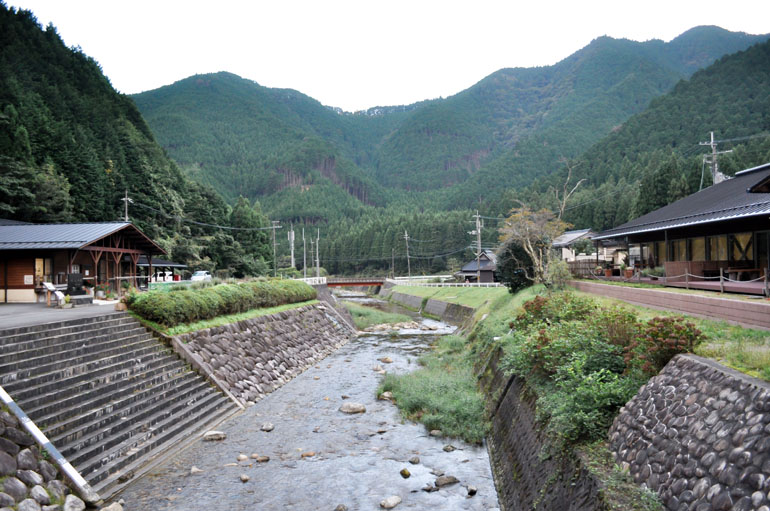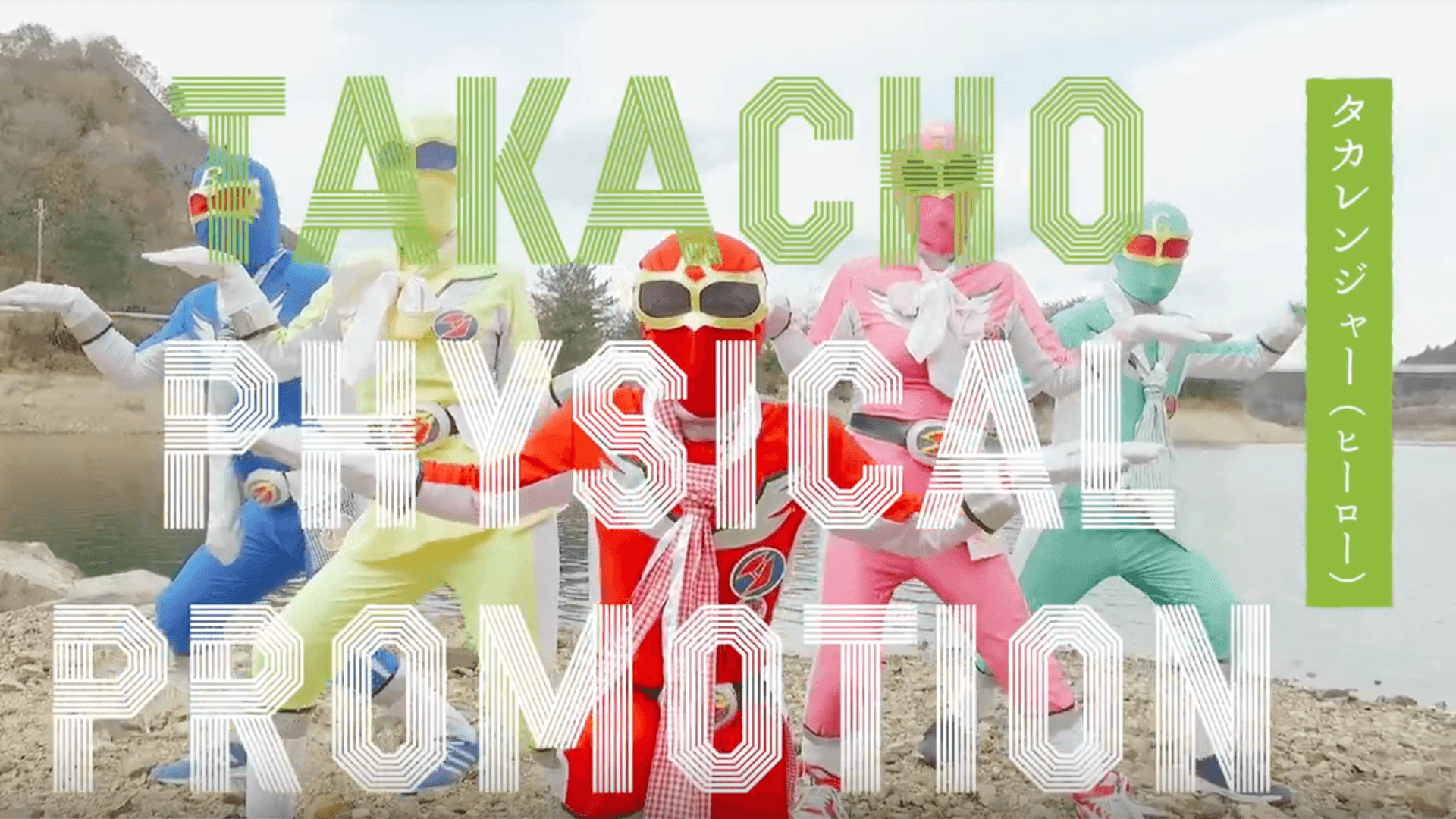About TAKA

Taka is a mountain village of 22,000 people located in central Hyogo Prefecture.
The town of Taka is surrounded by mountains including Mount Kasagata, which is counted among the “Top 100 Mountains of Kansai,” the sacred peak of Mount Myoken, where people have sought faith from time immemorial, and Mount Sen.
One of Taka’s main attractions is the Iwagamiza Terraced Rice Fields (iwagamiza no tanada), selected among Japan’s top 100 terraced rice fields. Taka is also replete with historical points of interest, including historic landmarks like the Higashiyama burial ground — the largest ancient burial ground in Hyogo. The town also features a number of accommodations where visitors can get in touch with nature, such as natural parks and campgrounds.
In addition to being the birthplace of yamada nishiki, Japan’s foremost sake rice, Taka offers local specialties like the brand-name chicken, Banshu One-Hundred Day Chicken, Takano tofu, which is said to be the first successfully mass-produced tofu, and Banshu-ori textiles, which are used in famous international brands.
To top all of that, Taka is also the first region across Japan to have started ebi no hi, or “Shrimp Day.”
Taka does not have what other places may take for granted.It does have, however, encounters and experiences that you cannot find anywhere else.
Although Taka does not have a shopping mall, it does have a Countryside Convenience Store where visitors can buy nice and toasty delicacies made by a good ‘ole Kansai woman.Even though the town does not have an arcade game center, it brims with activities like mountain climbing, camping, sports, and leisure activities.
Above all else, though, Taka embodies the traditional Japanese landscape, a tapestry of clean, fresh air, great-tasting water, mountains, and terraced rice fields.


In the town of Taka, a whole range of interesting and passionate people — old and young, men and women — are go-getters that create the jobs they want with their own hands. Brimming with life and living on their own terms, the people of Taka exude such a positive atmosphere that it will flip your idea of the so-called “countryside” on its head.
Experiencing the people, places, and crafts of this town firsthand and portraying its charm through film will surely uncover some hidden keys for outlying communities in Japan to survive moving forward.
Here, we will present just a very limited number of the SUGOI (“amazing”) people you can be sure to meet when you participate in the Video Camp.
The super mom who crafted nori-maki sushi that has people lining up

The long queue that forms every morning in the mountain village. Awaiting visitors where the line ends is Meister Kobo Yachiyo’s Thick-Rolled Sushi.
The owner, Ms. Fujiwara, launched Meister Kobo Yachiyo and has been involved in the development of virtually the entire menu. Ms. Fujiwara gives the impression of a splendid good ‘ole Kansai woman, laughing heartily as she explains that the recipe ideas hit her one after the other with menu items including the kan-puter (a pun on “computer” and “kan,” the Japanese word for “sense” or “intuition”) and the “bero-meter” (playing on “bero,” the Japanese word for “tongue”).
The Thick-Rolled Sushi contains half of an entire cucumber, rich-tasting shiitake mushrooms stewed in soy sauce, and thick, fried eggs. Eating the sushi from the end where the soy sauce-stewed shiitake mushrooms are and finishing with the cucumber sets off the taste just right. Despite the unsophisticated taste, the dish’s popularity has spread beyond the local area and has even been featured on variety shows that are broadcast nationwide.
Meister Kobo was originally started with the intent for moms to develop specialties featuring local produce; however, the shop began selling prepared foods in response to demands by people wanting to purchase ready-made dishes in the local area where there are no supermarkets or convenience stores. Filled to the brim with the spirit and ideas of this good ‘ole Kansai woman, Maester Kobo continues to be beloved as the countryside convenience store.

The rock and roll dad who meticulously raises great-tasting chicken

Mr. Ishizuka is now on his ninth year raising the brand-name chicken, Banshu One-Hundred Day Chicken, after quitting his company position. He says: “Hobbies and romance won’t put food on the table.”
Although chickens are generally ready to be shipped after around 70 days, Banshu One-Hundred Day Chickens are raised for 100 days to cultivate richer-tasting, firmer meat. On top of demanding a greater deal of effort than typical poultry farming, Banshu One-Hundred Day Chickens also require higher costs for feed.
To top that off, there are no days off in the livestock industry where you are dealing with living beings, and the industry is greatly affected by the weather from year to year. Mr. Ishizuka has had his fair share of hardships — seeing his chicken coop submerged in water as the result of a typhoon and chicks he tried raising from the time they were eggs go to ruin — and he has been to the brink of losing hope a number of times. His family and the more veteran local chicken farmers were there to support him every time.
Now, Mr. Ishizuka has built experience and reached the point where he can get a read on the chickens’ moods. Going to live rock concerts with his sons on his days off is Mr. Ishizuka’s modest form of entertainment. Amid Taka’s poultry-farming industry where the population is aging rapidly, how will Banshu One-Hundred Day Chickens be passed on to the next generation? Mr. Inazuka is fueled by his passionate sense of duty.

The unit of young men bringing Banshu-ori textiles to the world.

Banshu-ori textiles are a kind of textile created in the North Harima region that straddles Taka and the city of Nishiwaki with a history of over 220 years. With yarn-dyeing that takes advantage of the fresh stream of the Sugihara River and sophisticated weaving techniques, Banshu-ori stands out for its vibrant colors and easy-on-the-skin fabric. Owing to its beautiful weave patterns such as checks, stripes, and dots, Banshu-ori textiles are not only used in 70% of domestically-produced shirts, but are also put to use in famous international brands.
Banshu-ori Next Japan (BNJ) is a group formed by the next-generation leaders in their 20s and 30s from six companies manufacturing Banshu-ori textiles.
Conventionally, each of the companies had continued making their fabrics based on orders placed by trading companies. At BNJ, each of the respective manufacturers work on finished products including shirts and original fabrics with designers, which they promote as the BNJ brand in an effort to spread awareness about Banshu-ori textiles. The development of each company’s products, launching of direct-sales websites, and more are an accumulation of initiatives by each respective company, and the network works flexibly both individually and as a team as the six companies come together from time to time to present in exhibitions both at home and abroad.
The union of members that had conventionally been active separately has given rise to a robust textile-producing network that “can make anything” with the combination of each respective member’s specialties. Moving forward, the group claims to be poised to take on the challenge of collaboration both inside and outside the local community with designers and other industries that they had never before connected with (such as the medical industry).

Want to know more about the "SUGOI", or "awesomeness", of Taka-cho?

the town's promotional website "Sokomade yattaka! Takacho" introduces the many charms of Taka-cho such as tourist attractions, foodie destinations, and craftsmanship by the amazing artisans of the region, including "Sugihara-gami", a type of traditional Japanese paper, and Yamada Nishiki, a type of brewer's rice.
Website http://www.ya-taka.jp/

